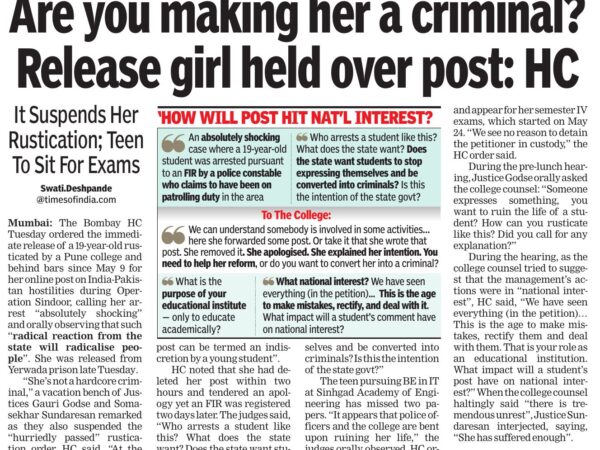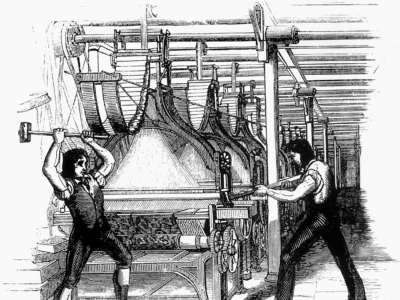Long years ago, my father (then, a mere Flt Lt) was called by the CO of his squadron and asked if he had a fresh, smart-looking uniform ready in his closet. On receiving a reply in the affirmative, he was asked to get into the said uniform and report to the Base Ops, where he was tasked to get into a chopper and leave immediately with an explanation that sounded exceedingly vague and had something to do with the local Air Force representative for a VIP’s pre-visit checklist of some sort.
Anyway, he found himself flying over the dense forests of North-Eastern India in a rickety helicopter piloted by someone wearing a cowboy hat, leather jacket, and aviators (which my father later theorised as some sort of universal chopper pilot uniform, for some reason), and who obviously believed in the ‘seat-of-pants’ flying dictum literally, because as my father described it, the seats of their pants were almost touching the tops of the trees. He has often said that he has great respect for chopper pilots for two reasons: their nerves and their local navigation abilities, where they resemble more a trained hound sniffing the ground as he friskily follows a scent than the highly trained aerospace professionals that they are.
Soon, he was put down in a clearing, and with a terse (and somewhat ominous) ‘Good luck. I’ll be back in the evening. Try and be here’, the chopper pilot pulled at his collective, picked up his tail, and vanished into the thicket, hopefully back to his squadron and not to a nearby bar, which is where one would have thought daredevil chopper pilots went to relax, and perhaps, just to calm their nerves, play a round of Russian roulette with the local warlords, while throwing back shots of local whiskey. Or at least that is how he imagined them.
Back to the story: He looked around and saw quite the setup, with the army chaps having put up a tent, marked areas in white lime-powder lines, arranged potted plants (in the middle of a jungle?), and busily rushing about, giving the whole place a sense of purpose, though it was not immediately apparent as to what it might be. So, he collared the first gentleman he could find and asked who was in charge. Soon, finding himself in front of a Colonel (I am not sure, but I think it was a Colonel), he reported his presence, and was immediately assigned two very large, very tall, very moustachioed, very Punjabi, rather fearsome-looking soldiers in what looked like uniforms that must have been stitched onto them, both carrying automatic weapons and having their backs so straight, one would have expected to find actual steel rods inserted into their shirts if one looked. Anywho, they asked my father to lead the way, but finding himself sandwiched between these two armed giants, it was my father who meekly followed them as the troop of 3 went around the entire clearing looking for…something. When they arrived back in the tent of the Colonel, my father was given a form to sign, which when he read, turned out to be a statement by the local security expert that the entire area, including the perimeter, had been checked thoroughly, sanitised of any threats like bombs, mines, and other explosive devices and that the arrangements are to the undersigned officer’s satisfaction, with the ‘undersigned officer’ being, in this case, my flabbergasted, surprised, speechless, astounded, astonished, shocked, and stupefied father!
He casually asked who was expected and was told, impassively by the talking moustache, that it was the Prime Minister herself who would be landing here on her visit to the interiors for further inspection. Goggle-eyed and speechless, my father gathered his wits and asked to see the Colonel, who was busy (or appeared to be) in something that seemed far more important than making small talk with an officer three ranks below him, and from the wrong service. This tete-a-tete that my father planned was certainly not on his agenda for that day at all. So, while my father stammeringly attempted to explain to the unconcerned and uncaring audience present that he was by no means an expert and that he could not possibly certify that the site was clean, the idiom ‘water off a duck’s back’ started to make its meaning evident to the boy who only learnt spoken English after he joined the IAF in 1967. The Colonel turned to him, and explained, in a voice that he would have used to speak to a child, how that form needs to be signed for the PM’s chopper to land and that he was done wasting his time and that it needs to be signed NOW. So, the form was duly signed and filed, and my father stood around twiddling his thumbs wondering what he was to do now.
Anon, the radio crackled, the PM’s chopper came over the horizon and the army lines formed quite quickly, orders were shouted, and with much fanfare, she was received, and quickly ushered into the tent, from where she emerged a few minutes later, sat in a vehicle and the entire convoy trundled off into the kuchha roads of the jungle, leaving my father waiting for the chopper to come back to pick him up, which it did, and he was back to his squadron, none the wiser, grateful that (a) no bomb went off, and (b) the ordeal was over finally and that he could breathe easy.
However, as the saying goes in the military, ‘the reward for good work is more work’, and since this ‘local security expert’ had so efficiently and professionally ‘managed’ the PM’s landing zone’s sanitisation, suddenly he was called for every VIP (real or imagined) that was landing in the area. And while he claims he never really learnt how an actual mine would have looked had he seen one, or what do to in that instance, and how to ‘sanitise’ the area had he found an explosive device, he continued to be called upon for his ‘special’ expertise and skill until he was finally posted out of the North East.
Knowing my father, of course, this seems a bit far-fetched and I am sure he did his reading, consulting, and research once he knew what he had gotten into. Indeed, before he left for his new posting, he was called in by the CO and asked to hand over his knowledge to another officer who would be taking over from him. Baba never told me what he handed over but knowing him, he probably created a detailed SOP, with drawings and photographs, charts and dummy maps, and steps to take from the start to the end, and I can bet that this document was probably used for a long-long time, and was the precursor to whatever it is that goes by the name now. Of course, I am speculating, but I know my father. And a bit of how government departments work.
Many years later, when we were entering a mall in Pune and went through the whole check-bags-metal-detector-frisk process, and before that, the open-your-dickie-and-pop-the-bonnet-mirrors-under-the-car thingy, he and I got into a conversation about this (and that is when I heard this story), and while he did say that these things act as deterrents for the most common means of ingress (just like your basic door lock would never stop a good thief, but would deter casual kleptomaniacs), the training that is imparted to the poor souls who man those posts is less than inadequate. It is not only pathetically ineffectual, but also doubly dangerous because it gives them, and us, a false sense of security, and allows people intent on doing harm to do what they wish to do anyway.
For example, he had serious doubts if anyone in the security hierarchy at the mall even knows how an IED would look like or what they should do in case they found one. I mean, I am not speaking of clearing the area, calling the Bomb Disposal Squad, and waiting. I am speaking of how they will handle the situation and the person who is caught with an explosive device; whether they are trained to check for concealed weapons, in methods to arrest and restrain someone (I do not remember seeing handcuffs on even one of those mall security guards), ways to interrogate them and find out if they had accomplices and if so, where they might be, what to do in case the attacker runs into the crowd, or into the hundreds of hiding places in a mall, and so on. These are basics and there is no way in hell that semi-educated guard from the Gangetic plains working two jobs on a minimum wage has had such an extensive training, or is equipped with the tools to carry on his (mostly his) duty.
My father also had a funny theory about what these guards, many of them devout Hindu cow belters and from the various mofussil areas around large cities like Pune and Mumbai, may think the metal detecting wand does: He hypothesised that these guards think of the wand as some sort of magic, like an aarti or ritual done for ‘nazar utaarnaa‘ (remove the evil eye), whereby simply the act of waving that wand around the person somehow magically ‘purifies’ that person and defuses any explosive material or firearms they may be carrying. And with this insight, whenever I see the mall guards use the metal detector wand, I cannot help but visualise them with an aarti thaali doing what they think protects them, their environment, others, and me, from any evil thought or act.
And I smile. They catch it. Then, they smile. And we both wish each other and carry on, none the wiser.

















